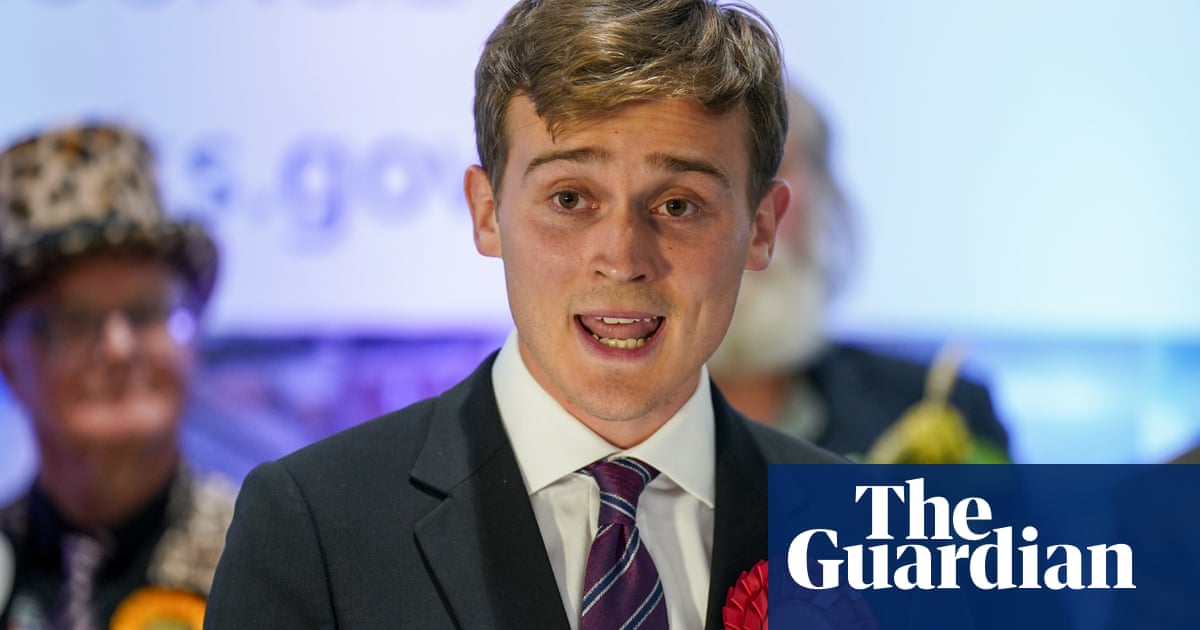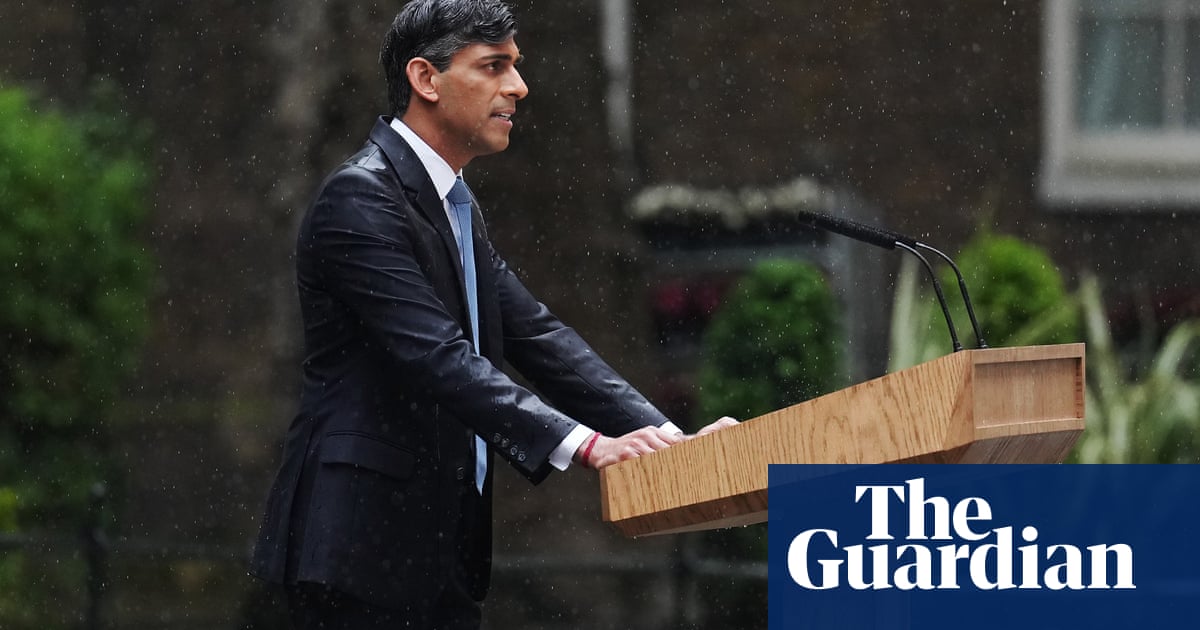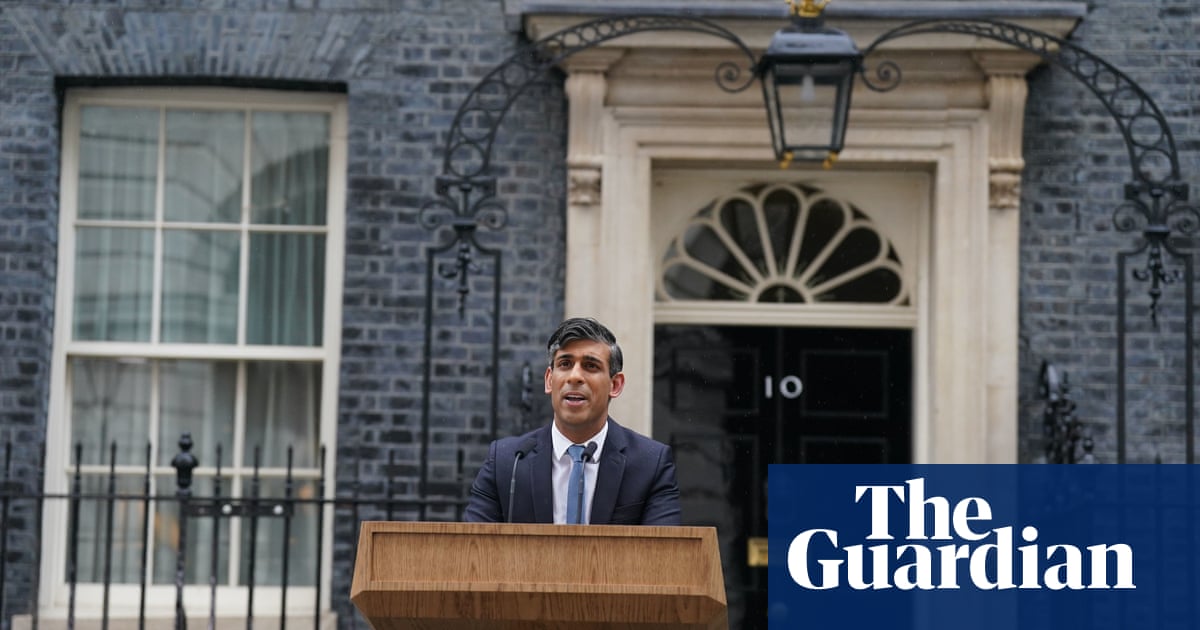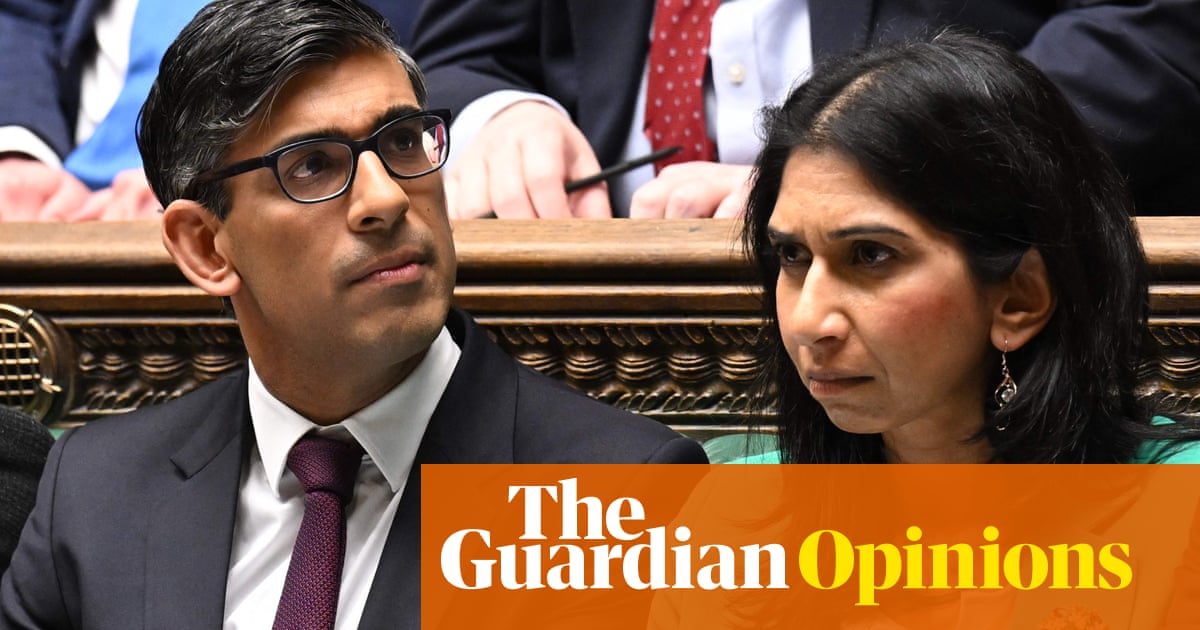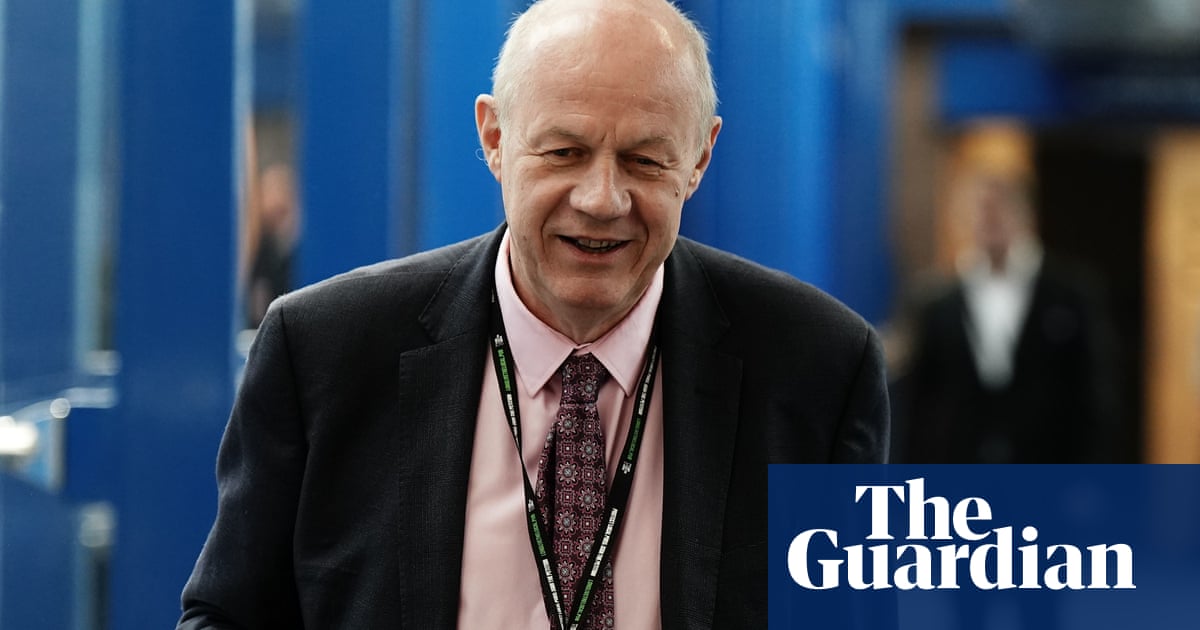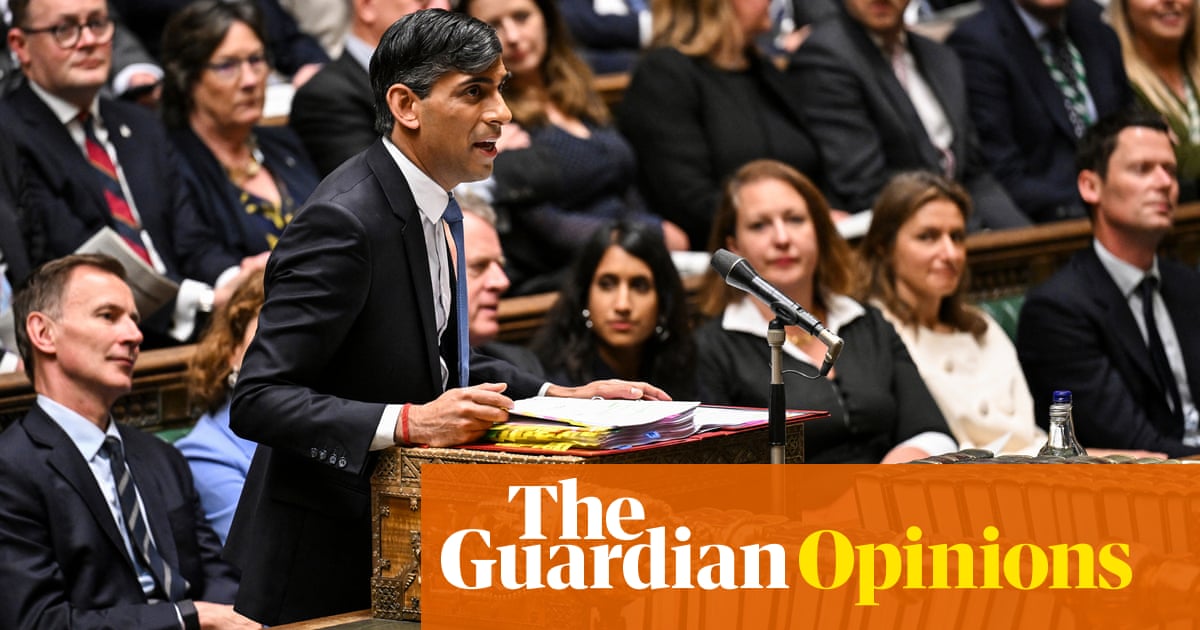
If the prime minister’s announcement of a snap election had been an event in a scripted drama, we might accuse the director of laying it on a little thick. The rain might be justified as pathetic fallacy, but having Things Can Only Get Better blasting on a tinny speaker was a bit over the top.
At least the police finally managed to prevent the song from being played any further. They must have been no less caught off guard than the country – including Tory activists and politicians.
Why now? Even on the morning of the statement, it would have been difficult to believe that Rishi Sunak was really about to go to the country, if for no other reason than that Downing Street’s main media story had been a stern warning to voters to start stockpiling canned food and bottled water – hardly an auspicious backdrop to an election campaign.
There was a case for an early election, to be held in May. Coinciding with the local elections might have lifted the Tory turnout, saved councillors and allowed CCHQ to fight the campaign with a stronger ground machine, its ranks not yet thinned by the loss of almost 500 councillors.
If not then, the most likely option seemed to be the autumn. It would give the government the maximum possible time to turn things round before the campaign risked ruining Christmas, offer Jeremy Hunt the chance to deliver a second fiscal event and allow Sunak to reach his second anniversary in No 10.
Given all that, why did the prime minister decide to go now – and when did he make that decision? There has been speculation about a summer election since the start of the year. Was it the plan all along?
We can’t know for sure, but it doesn’t seem likely to have been the plan when the chancellor delivered his budget a couple of months ago. At the time, the general view was that it wasn’t the sort of giveaway we might expect of a pre-election event; Hunt was likely saving some goodies for the second fiscal event supposedly planned for later in the year.
Yet by April, things seemed to have shifted. Having taken a lot of heat from ministers and backbench MPs for ignoring the armed forces in March, Downing Street suddenly announced to great fanfare a boost to defence spending.
It seemed rushed – the Treasury’s interpretations of the figures didn’t even line up – but the timing was also odd. If the government was planning a pre-election fiscal event, that would surely be the time to try to wrongfoot Labour with more cash for the troops. Why take all the flak, and then launch it two months’ later?
On the organisational side, there remain about 150 constituencies where no Conservative candidate has been selected – not the conduct of a party secretly putting itself on a war footing.
By last week, the evidence was there for those (not I) with the courage to call it. When Sunak was pressed after his big election-framing speech to rule out a July election, he would only repeat that he would go to the country “in the second half of the year”.
So, what might have changed between the beginning of March and today that would induce him to take the extraordinary step of calling an election, sooner than he has to, when his party is about 20 points down in the polls?
It could be Rwanda. Downing Street may have realised either that it almost certainly will get a plane off the ground before July – thus hopefully banking any benefit to be had from voters seeing the scheme become a reality – or that it definitely won’t, in which case another summer of Channel crossings would risk further corroding the government’s credibility with voters most concerned about immigration.
Perhaps, too, ministers have realised that the mounting crisis over prison places, which has seen inmates released early and the police advised to arrest fewer people, is only going to get worse. Or they have weighed up the risk that events in Ukraine or the Middle East could trigger another global shock and destroy the government’s narrative about economic recovery.
On the positive side, a summer election is at least as far away as possible from the annual NHS winter crisis, and households may be feeling a small cost of living benefit from lower energy bills in the warm weather.
But it’s a thin thread on which to hang the future of a government. Tory MPs are rightly furious: many, even in safe seats, face the most difficult election of their lives. They had hoped against hope for a plan; they might have at least expected a warning.
Henry Hill is deputy editor of ConservativeHome




